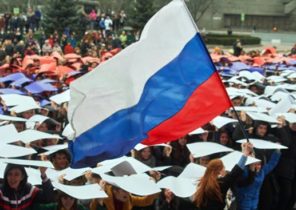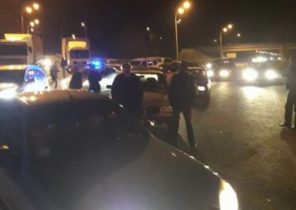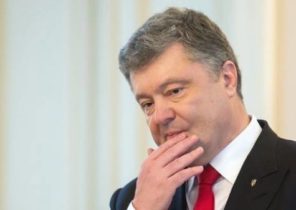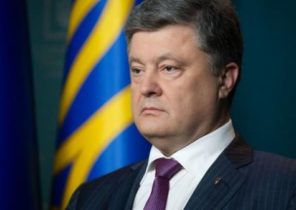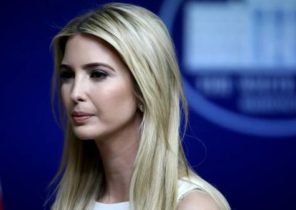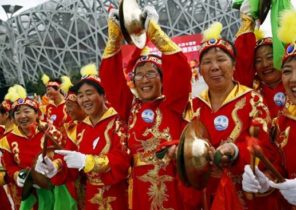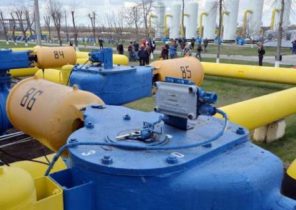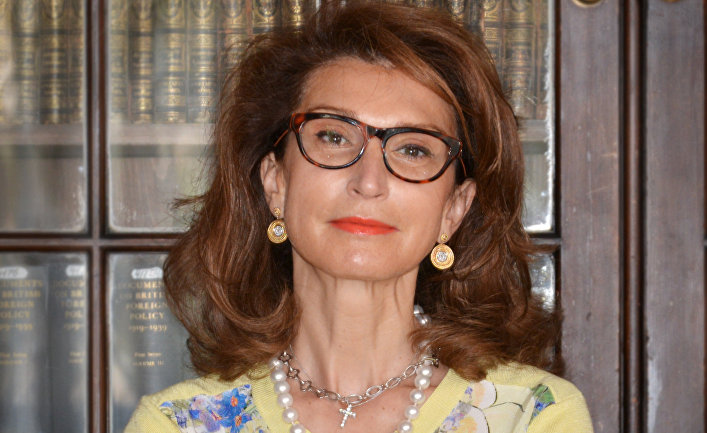
So unusual for the British press with the title an article appeared in a recent issue of the Economist magazine. In the British Parliament, and in society in General, not a day goes by without a discussion of the state of Affairs in the educational system of a country that for centuries was considered the best, and now gives serious failures. It is not a secret that in England there are children and young people who can neither write nor count, do not know the basic literacy and arithmetic. The material describes non-standard for the London normal school situation and tries to understand how simple a public school from a poor area of London, became one of the most successful educational institutions in the UK?
The Economist writes: to learn more about the Soviet Union’s impact on English education, visit College prep in the London borough of Lambeth, a 20-minute walk from the Parliament. There, in a former public baths, tucked away among residential buildings, is Mathematical school, king’s College London (King’s College London Mathematics School, KCLMS). Go and you will see how students have fun solving the math problems on dry-erase boards, and the tables are chess boards with built figures. The atmosphere of the school is rather “economical option” College in Oxford or Cambridge than state-school in a residential area of London.
This school established on the model of the Moscow school. A. N. Kolmogorov, which since the mid 60-ies of the last century capable of taking students at the age of 15 years and provides them with the best math education in the country. Michael Gove (Michael Gove), British Minister of education from 2010 to 2014, “imported” Soviet model on British soil, and opened specialized mathematical colleges at the universities. Gove then, as Minister, has set a goal: to enable all children, regardless of their level of material wealth (and we know how expensive London private schools) to gain knowledge in mathematics and physics “at the level of Eton”. That is, in fact, Michael Gove has scalarval the Soviet system, in which capable children had access to education in specialized mathematical schools, without paying a penny for it.
However, as written in the article, only two universities responded and opened a school. School of mathematics, king’s College London KCLMS and Exeter mathematics school (Exeter Mathematics School), founded by the University of Exeter (Exeter University) in 2014. And here, on 23 January this year the UK government announced the need to increase the number of such schools. It was a logical step, as the Cabinet of Ministers adopted the programme of “industrial strategy” in which you plan to open a new school of mathematics across the country. Rumor has it that some universities have already revised their original reluctance to participate in this project.
The Economist acknowledges that for the UK the question of how to teach gifted children is a sensitive issue. Some time ago the Prime Minister Theresa may (Theresa May) announced that is considering the lifting of the ban on opening new grammar schools which select students based on their academic achievement at the age of 11 years. While some actively support the idea of grammar schools, others violently opposed. As they say, even the current Minister of education Justine greening (Justine Greening) privately expressed skepticism about the plans for the return of such schools.
In the article, however, notice that this mathematical school, king’s College London (KCLMS) is extremely selective approach to the selection of guys. The applicant to study in her should have the highest score (“A*”) in mathematics at GCSE, which are rented by students at the age of 16 years. But, says the Economist, still in all such colleges may not be as “social sharing” than the grammar school that cares, the current Prime Minister Theresa may.
The Economist arguments are that, first, the selection of the most successful students at age 16, already widely used and considered more reliable than testing eleven-year-old schoolchildren. And secondly, very importantly, school KCLMS better than most grammar schools to cope with the task of recruitment of students from low-income families. In the recruitment process, preference is given to children from non-prestigious schools in poor areas and from poor families, where parents usually do not have higher education and are not able to pay even for the kids ‘ Lunches. But 14 % of pupils KCLMS eligible for free Lunches at school, that is officially belong to the category of the poor. While in the grammar schools, only less than 3% of children from poor families have the opportunity to get free food.
Experts in the field of education in England sounding the alarm because the fate of the children, failed the entrance exam to grammar school, it is very difficult. These children in the future learn worse partly due to the fact that they allegedly “tarnished its reputation”, and get a stamp of “losers” and “dysfunctional”. At the same time, if the student fails the entrance exam to the preparatory College, that is hardly it leaves the “social stigma”. In this regard, there is a perception that agencies like KCLMS will allow to raise and to support the most gifted children, and at the same time, not to destroy, not to crush those who failed to pass the exam.
The statistics say about the effectiveness of this “Soviet” model of schools. The guys who polucilasi the opportunity to study in this school achieve great success: of the 61 students of the graduating class KCLMS 14 already received an invitation to Oxford or Cambridge. In 2016, all students received the highest rating “A*” or the following “A” on the exam A-level, which is leased at the age of 18 years. The results of the students on average 0.7 points for each subject than their peers with similar exam results GCSE.
School Director Dan Abramson (Abramson Dan) connects these results with the fact that teachers need deep knowledge of his subject as the lessons can go far beyond the school curriculum. A small team of teachers spends many hours processing large amounts of information and attending many lessons in order to understand how to improve the learning process. The program is developed in cooperation with scientists from king’s College London so that students could prepare for entrance to UNIVERSITY. Graduate students act as mentors for the students the first year. Optional classes for the most able is one of the honorary professors of mathematics at the Royal University of London.
The Economist writes that the success of the school is determined and its culture. Guest speakers from organizations such as the government communications Headquarters (GCHQ), the British on electronic intelligence, or company for the creation of artificial intelligence Google DeepMind, helping to link academic pursuits with the outside world, though, of course, to their advantage.
We must pay tribute to the British, who are trying to collect the world all the best, including methods of education. And our country, Russia, with its phenomenal scientific progress is in the area of their special attention.

